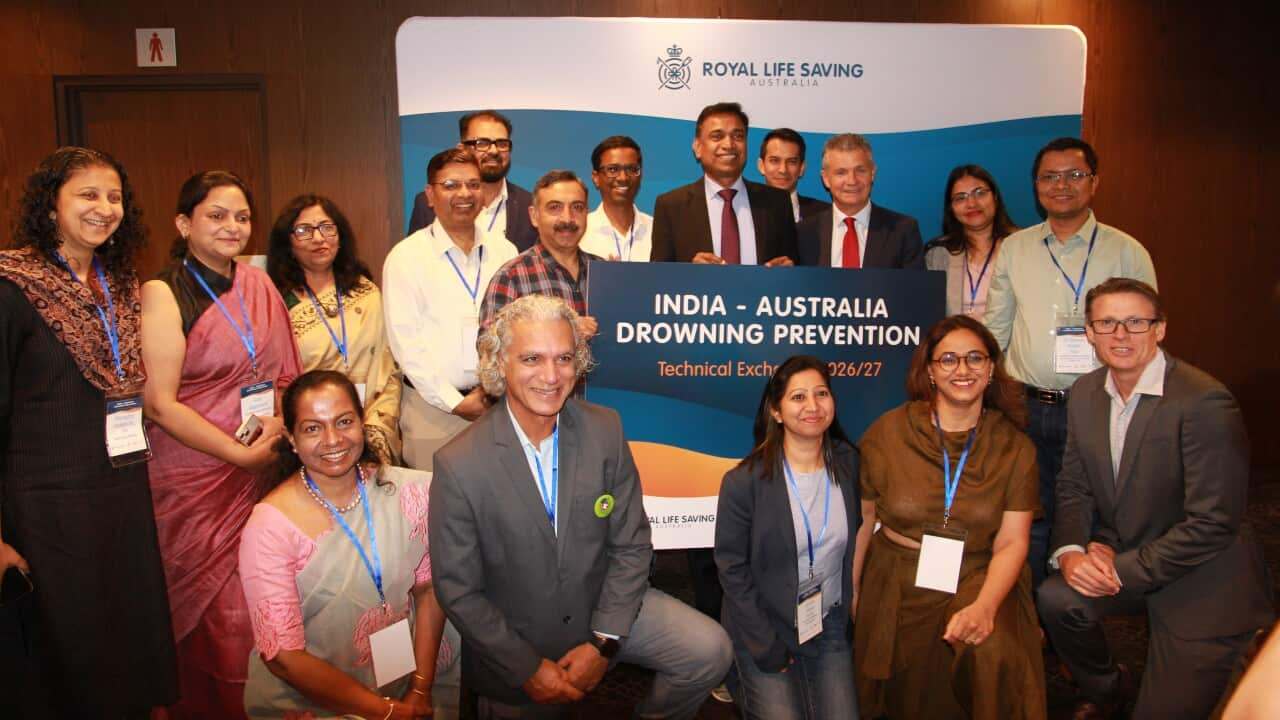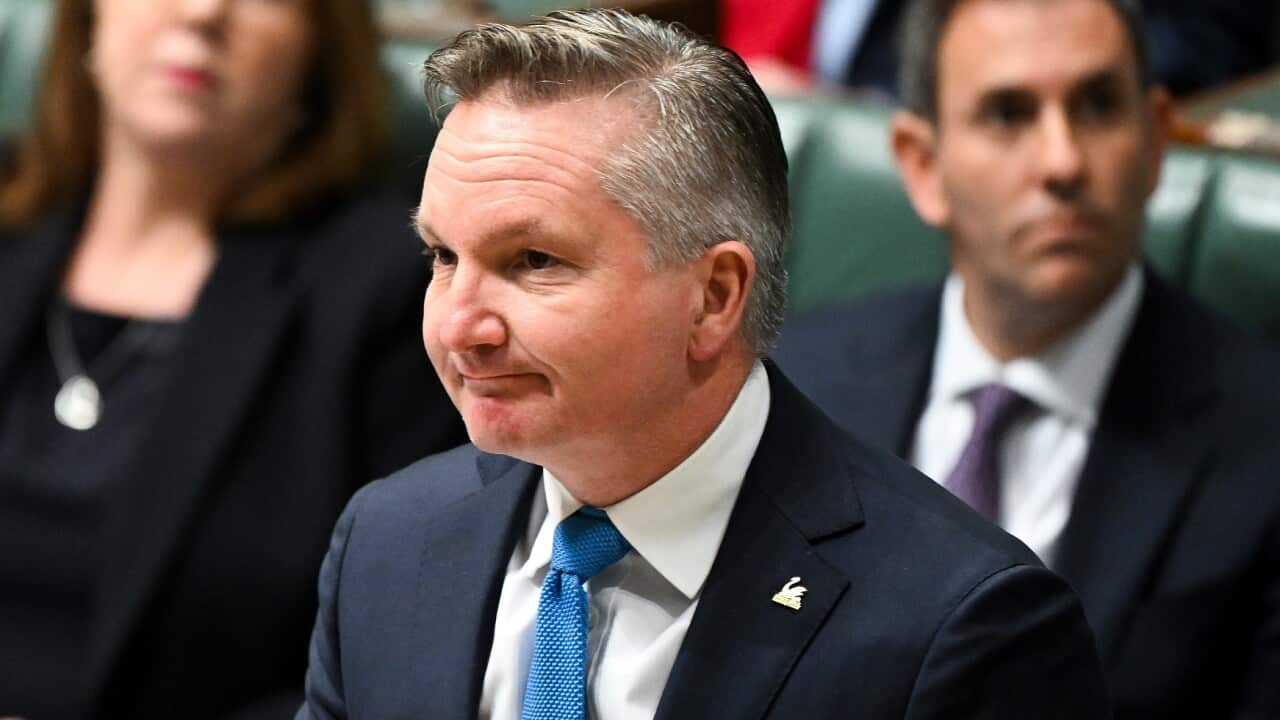Listen to Australian and world news, and follow trending topics with SBS News Podcasts.
TRANSCRIPT
At seven years old, Max was diagnosed with Tourette Syndrome, a lifelong neurological condition that can cause rapid, involuntary movements and sounds known as tics.
He's suffered from bullying at school, leading him to drop out before the end of Year 10.
The ongoing stigma surrounding the condition means Max isn't able to work or volunteer at animal shelters, because employers think his tics might frighten the animals.
Dr Melissa Licari, a senior Research Fellow at The Kids Research Institute Australia, says those experiences are severely affecting Max's mental health.
"Tourette's took more than just the control of Max's body. It has profoundly impacted mental health. At now 18, Max's mum has lost count of the number of suicide attempts. Max's mother told us Max doesn't want to die, but also cannot live like this."
In Australia, one in every 100 school-aged children lives with Tourette Syndrome.
She says Max's story reflects the ongoing challenges that young Australians living with the condition have been facing.
"Now, Max's story reflects the harsh reality based by meaning living with Tourette's and other tic conditions in this country: long waits for diagnosis, limited access to effective treatment, turned away by the NDIS, stigma, discrimination, not being believed, limited understanding and support in schools and workplaces, and this sadly results in severe mental health issues. These challenges aren't new and they've been ignored for far too long."
Dr Ari is a co-author of Impact for Tourette, Australia's first national survey looking at the mental health of people living with Tourette Syndrome.
It interviewed over 200 individuals and caregivers, finding one in two children with a tic-related disorder has thought about ending their life.
But it found one in ten children has actually attempted suicide.
The report also found there is a shortage of psychologists with the expertise to offer treatment for tic disorders.
Dr Amanda Maxwell is a Clinical Psychologist and Clinical Research Manager at the UNSW Tic Clinic.
She says that lack of psychological services has pushed people to seek medication to treat tic-related disorders.
"Now medication can be very helpful, but of the sample that we surveyed, 50% said that it did not control their tics or minimally controlled their tics. And there's obvious side effects as well with some of the medications. In terms of the impact on function it was great. So 80% of our survey, those surveyed experienced tic daily and about 50% of the children reported that they didn't have tic-free periods of more than five to 10 minutes in a day - so they're ticcing all through the day."
With those symptoms, many living with the condition - like Max - are unlikely to be able to work.
But according to Dr Maxwell, they're also struggling to get their NDIS application approved.
"The financial burden is great. It's not just because some adults are unable to work, but there is also a significant cost of accessing healthcare for these young people. One in 20 had NDIS funding. Three out of four had their applications denied. My experience and the experience of other clinicians is that they are denied because tic disorders are not considered a permanent disability, yet even adults we work with - that clearly have tics that have persisted into adulthood and that experiencing significant functional impairment - are also being told that their disability is not a permanent disability and denied funding."
Each year the Tourette Syndrome Association of Australia holds an Awareness Week (June 1-7 2025).
This year, the theme is "Understand the Impact", focusing on educating the public on the condition.
Professor Valsamma Eapen is Scientia Professor and Chair of Child Psychiatry at UNSW Sydney.
She says while it requires a comprehensive care plan to look after people living with tics, sometimes, even health professionals don't have much awareness of what's needed to support their patients.
"GPs are usually the first stop, but could also be paediatrics in neurology, psychology, and some will go to the eye specialist if the fast tic is blinking or screwing of the eye, or ENT specialist when they have a vocal tic like grunting or throat-clearing and so on. But often it's not picked up as tics or Tourette, better understanding is critical as currently caught between two main worldviews. One is, oh, tics not to worry, they'll grow out of it. Or Oh, is that the swearing syndrome where people blurt out the obscenities? You don't swear so you can't have Tourette, right? Neither is a helpful approach because the majority would fall somewhere in between."
Professor Eapen calls for more training for professionals, while urging the government to launch a national guideline on Tourette Syndrome.
"A national guideline will provide uniform minimum standards and a consistent approach that's agreed upon by all consumer stakeholders, professionals as to the framework to awareness, early identification, comprehensive assessment, and also matching supports. And that should also include accommodations at school and for disability supports where it is applicable. It is indeed a human rights issue for the 55,000 Australians who are living with Tourettes."
If you or someone you know needs crisis support, contact Lifeline on 13 11 14, the Suicide Call Back Service on 1300 659 467 or Kids Helpline on 1800 55 1800.













